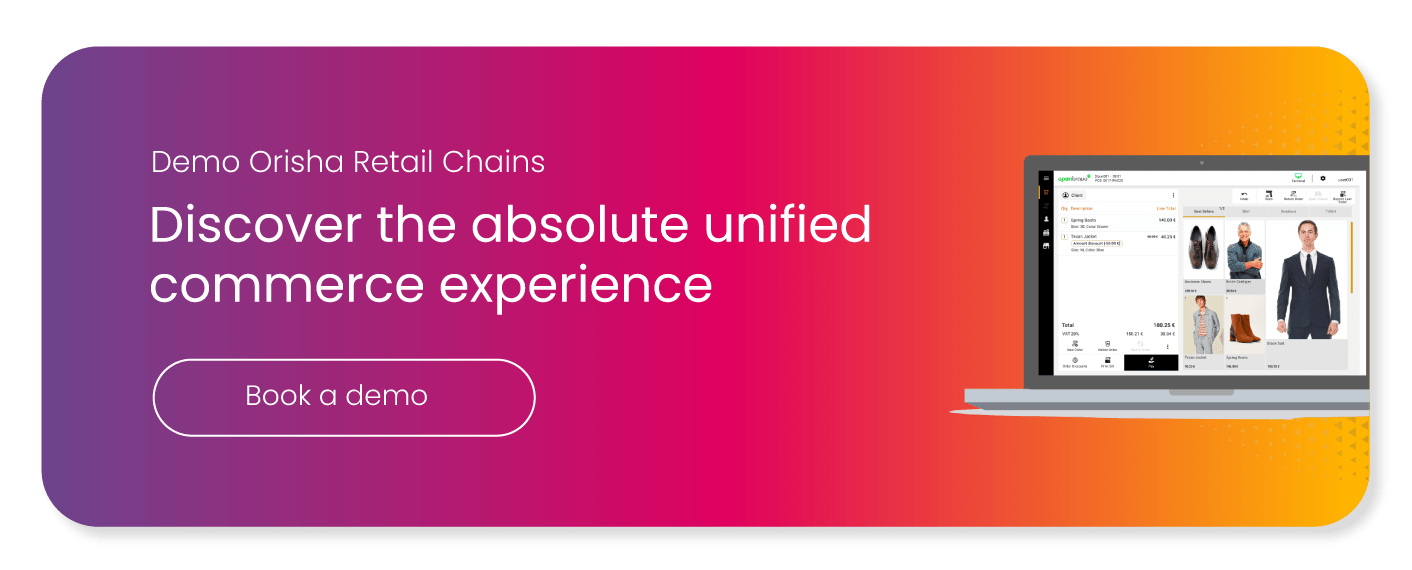The Connected Salesperson: Essential Tools for Modernizing Your Sales Force

As commerce continues to shift toward digital, physical stores must constantly innovate to stay competitive. Enter “phygital”—a concept that blends the best of digital technology with the in-store experience. Your sales force plays a vital role in this web-in-store strategy, but equipping them with the right tools is essential to enhance the customer experience.
From omnichannel management to salesperson tablets and mobile apps, we’ll explore the must-have tools to modernize your retail sales team and empower your connected salespeople to succeed every day.
1. The Connected Salesperson: Key to a Seamless Customer Experience
Connected retail addresses the evolving expectations of today’s in-store shoppers. Customers now seek more than just a place to make a purchase—they want expert advice, a quick and seamless shopping experience, with real-time information on product availability and speedy checkout, all wrapped up in a personalized experience.
Store digitalization, or “phygital,” has become a must-have strategy, introducing touchscreens, smart mirrors, and intelligent fitting rooms to enhance the in-store experience. But web-in-store strategies are not just about technology; they rely heavily on people—especially the sales team.
More retailers are turning to connected or augmented salespeople, who bridge the gap between technology and the customer experience. Their main role is to leverage digital tools to create a smooth, optimized shopping journey. With these tools, the connected salesperson becomes the cornerstone of a new customer relationship, focused 100% on service. They offer true added value with their product expertise and can tailor advice based on each customer’s needs and preferences, acting as facilitators of a personalized and memorable shopping experience.
2. The Omnichannel Management Solution
Omnichannel strategies have become essential in retail, as consumers now shop across multiple channels—whether online, in-store, or via their smartphones.
To meet these expectations, adopting an omnichannel approach across all touchpoints is crucial to deliver a seamless and consistent customer experience.
An omnichannel management solution is key to equipping your connected sales team effectively. It provides a 360° customer view via an integrated, multichannel CRM, gathering essential data from online purchases, social media interactions, and in-store visits. This gives the salesperson full access to a customer’s purchase history, preferences, and behaviors, enabling them to offer personalized service and recommend products tailored to each customer’s unique needs.
In a sporting goods store, for example, the customer journey often starts online—pre-filling information or booking an in-store appointment to access a product or service. For ski rentals, the salesperson already has a purchase order or useful details to guide the customer toward a final purchase with expert advice. Similarly, a bike consultant can recommend the best product based on the customer’s use, purchase history, and maintenance records.
This continuous interaction between customer and business is made easier by an omnichannel solution, allowing the connected salesperson to assist customers at every step.
An omnichannel management solution also helps sales teams stay in touch with customers after their store visit, with follow-up emails, personalized offers, or feedback requests to strengthen the customer relationship and encourage loyalty.
However, it’s essential that the connected salesperson doesn’t lose focus on customer interaction. Constantly checking a screen could become counterproductive. That’s why the chosen solution should be user-friendly and intuitive, enabling salespeople to navigate quickly through different features and access product, stock, or promotional information with just a few clicks. This keeps the focus on the customer, ensuring a smooth and enjoyable shopping experience, while also making employee training easier.

3. Mobility
Mobility has become a game-changer for in-store sales teams, boosting their efficiency and enhancing the customer experience:
- Instant access to information: With mobile devices like tablets or smartphones, salespeople can quickly find all the information they need to respond to customer inquiries. From product details and technical specifications to stock availability and customer reviews, this instant access empowers salespeople to give accurate, relevant answers and build customer trust.
- Real-time stock management: Mobility allows salespeople to check stock levels on the spot and locate products within the store. They can also place orders in real time to replenish stock, preventing shortages and keeping customers satisfied.
- Personalized assistance: Mobile tools enable salespeople to track customer preferences and purchase histories, helping them provide tailored advice, suggest complementary products, or offer special promotions that match each customer’s specific needs.
- Mobile checkout: Using mobile apps, salespeople can process payments directly on the sales floor, without the need for traditional checkout registers. This speeds up the payment process, reduces waiting times, and enhances the overall customer experience.
A Note on Mobility by Orisha
Orisha’s Connected Salesperson app on mobile devices offers a complete view of customers, their shopping habits, and store stock, along with features designed to optimize the in-store experience. Salespeople stay connected with customers throughout their journey, from advice to mobile checkout, all while managing their department.
Available on any Android device, the app also includes a barcode scanner via the camera on devices such as Zebra PDAs, smartphones, or tablets.
We used to test various methods to check shoe sizes without making multiple trips to the stockroom, but they were rarely modern or 100% reliable. Now, with the mobile app, our salespeople simply scan the item and instantly see stock availability for each size and color.
By blending digital tools with human interaction, the connected salesperson elevates the in-store experience and serves as the face of your brand—provided they have the right tools to modernize the sales force. Omnichannel ERPs, integrated CRMs, mobile apps… These tools not only enhance customer service but also make the sales role more attractive, which is critical for employer branding, especially in today’s challenging recruitment landscape.





